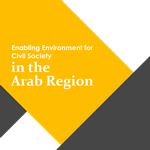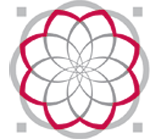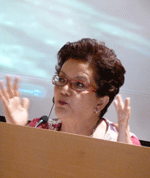Tunisia
Published on Thu, 2020-05-14 12:11
The COVID-19 health crisis added to the multidimensional crises in the Arab region and their manifestation in conflicts, wars, economic and social inequalities, and the increasing number of refugees and migrants. It could lead to severe repercussions at the economic, social, and political levels. According to an ESCWA preliminary estimate, the region will lose at least USD42 billion in 2020 due to the Corona pandemic. ESCWA also considered that the global spread of the virus and the growing impact of low oil prices could aggravate income losses. Unemployment is expected to increase by 1.2 percentage points, meaning the loss of around 1.7 million jobs. The Arab region registers some of the highest rates of inequality around the world, and informal employment accounts for 50% of jobs. It also lacks universal social protection systems and is thus unable to protect workers and ensure their dignity during work stoppages. |
Published on Mon, 2017-10-30 09:02
The implementation of the 2030 Agenda in Tunisia suffers from almost the same challenges encountered by the rest of the Arab economies. It is not legally binding and it provides the government only with guidelines. It also remains dependent on the good will of the government and its own priorities. It is subject to different threats such as instability, regional conflicts, immigration and displacements, demographic movements, social inequalities, economic crises and high public indebtedness. The economic crisis and the lack of funding sources are often mentioned to justify the incapacity of the Tunisian government to invest in infrastructure and development projects. |
Published on Wed, 2017-09-27 15:09
The Arab NGO Network for Development (ANND) launched a book on the enabling environment of civil society in the Arab region. The publication aims to present an overview of the current situation of civil society organizations in Tunisia, Egypt, Lebanon, Iraq, Syria, and Palestine. It uses several country-specific indicators regarding the establishment of civil society organizations and their success. The current conflicts raging in the Arab region constitutes a serious challenge, especially in lack of attention to laws regarding the work of civil associations, in addition to the shifts faced in funding. The publication highlights several legal challenges, especially those resulting from the lack of commitment to the principles of the separation of powers, as applied by democratic societies, as laws and regulations are often politicized. The book includes several recommendations to invigorate the work of civil society organizations in the regional, in order to consolidate the values of justice, equality, and sustainable development. |
Published on Tue, 2014-12-23 09:28
For the fourth successive year, a delegation of human rights and development civil society organizations from the Arab region will be visiting the European institutions in Brussels between the 8th and the 12th of December 2014. The Arab delegation includes civil society representatives from Egypt, Jordan, Palestine, Morocco, Syria, Tunisia and Lebanon. This visit seeks to provide a platform for dialogue and exchange between civil society organizations from the Arab region and European policy makers at the Parliament and Commission around the EU’s support and involvement in the region. |
Published on Fri, 2012-11-16 07:16
Access to state-provided abortion services has worsened since the Tunisian Revolution, according to the Tunisian Association of Democratic Women (ATFD). residents of some regions in the country, especially in the South and the North West, have complained that abortion services have not been available since the Revolution. |
Published on Tue, 2012-10-16 08:17
Eight Tunisian human rights associations, headed by Avocats Sans Frontières, have categorized 7,454 cases of human rights violations and filed them into databases. A better knowledge of that information will contribute to the transitional justice process currently underway in the country that is the beacon of hope for the Arab Spring. |
Published on Fri, 2012-09-28 10:53
Tunisian civil society is rallying in support of a 27 years-old woman who accused two policemen of raping her on September 3. The woman and her fiancé were summoned by a judge on Wednesday to face charges of “indecency” brought by those officers. Leading non governmental organizations, including the Tunisian Association of Democratic Women (ATFD) and the Tunisian League of Human Rights (LTDH), have formed a committee to co-ordinate a campaign to defend the couple. |
Published on Fri, 2012-08-03 15:34
The newly written constitutional clause protecting women’s rights in the Tunisian constitution has angered feminists and opposition politicians with wording that calls women the “associate” of man, reported journalist Mischa Benoit-Lavelle on Tunisia Live news portal. |
SUSCRIBE TO OUR NEWSLETTER










